“I don’t know what I am.” “I am A-Ro/A-Sex.” “I am non-binary, poly-sapio.” What?
When I first started going on dating apps, I found myself constantly flicking from profiles to Google just so I could translate what kind of preferences people were saying they had. Tamar and I have had many conversations about labelling ourselves. Whether it is necessary to label ourselves or if it’s okay just to say that we are “Tamar” and “Melodie.” I identify as a female who likes using tools while wearing an invisible tiara. I took a survey recently on gender, and according to it, I am “androsexual.” Why do we label? Why do some people refuse to label themselves, and others search desperately for theirs? Can labels be fluid?
In the Netflix show, “Tales of the City,” the topic of labels is brought up over a dinner party. At the table sits a fair number of baby boomers and baby busters that identify as members of the LGBTQIA+ community, along with one person who appears to be a millennial. As the men are talking and reminiscing, one of them refers to a group of people as being “trannies.” The millennial calls him out on it and states that it is an offensive term to use. Immediately, the men around the table appear uncomfortable, and one, in particular, speaks up. He asks why the millennial generation is so obsessed with labels and asks if he knows where they came from. He goes on to highlight that it was their generation that fought for them with their own blood, sweat and tears and that it wasn’t uncommon for them to go to funerals for friends who had died for the cause three or four times a week. He talks about how he may appear to be a man of “privilege” and that his appeared “privilege” was not something that was handed to him, but rather that it was something they fought for and won.
I’m not sure if it’s because I am gay or if it’s just a common topic amongst my generation, but the topic of labels seems to be brought up all the time these days. Some feel they are good. Some feel they are harmful, and some feel it’s too much. Is it? I don’t know. I’m open to learning and understanding, but this is what I have found helpful in understanding it all.
Labels can be great for many reasons:
- Self-identification: Labeling allows individuals to define and assert their own sexual orientation, gender identity, and other aspects of their personal identity. This can be super helpful when someone is working on understanding and accepting who they are, as well as in connecting with others.
- Community building: To further #1, it can help build on and provide a sense of belonging and support that is much needed within the LGBTQIA+ community.
- Advocacy and activism. Labelling can help raise awareness of LGBTQIA+ issues and promote equality and acceptance. When individuals openly and proudly affirm their sexual orientation, gender identity, and other aspects of their personal identity, they help to challenge societal norms and create a more inclusive world.
- Health and well-being: Labeling can also benefit the mental health and well-being of LGBTQIA+ individuals. By openly acknowledging and celebrating their identity, individuals can reduce internalized shame, improve self-esteem, and foster a greater sense of self-acceptance.
While labelling can be beneficial in the LGBTQIA+ community in certain ways, it can also be harmful in others. Here are a few ways that labelling can have negative effects:
- Stereotyping: Labeling can reinforce stereotypes and generalizations about LGBTQIA+ individuals, leading to further marginalization and discrimination. For example, labels such as “butch” or “femme” to describe someone’s gender expression can reinforce harmful gender norms and expectations.
- Pressure to conform: Labeling can also pressure individuals to conform to a certain identity rather than allowing them to explore and define their identity on their own terms. This can be particularly challenging for individuals who don’t feel like they fit neatly into a particular label or who are still figuring out their identity.
- Exclusion: Labeling can sometimes create divisions within the LGBTQIA+ community itself. For example, some individuals may feel excluded if they identify with a label that is not widely recognized or understood.
- Limiting: Labels can also be limiting, as they can oversimplify an individual’s complex identity and experiences. We can’t put people into boxes because people change and grow in time and circumstance.
While labelling can be useful in certain ways in the LGBTQ community, it can also harm others by reinforcing stereotypes, putting pressure on individuals to conform, creating division, and limiting people’s understanding of their own identity. It’s important to approach labelling with sensitivity and to recognize that everyone’s journey is unique and deserving of respect and understanding.
There is no one easy answer. Last night I used a filter on Tiktok that was supposed to tell me about what kind of lesbian I am. I was in bed, looked super dishevelled, and had no makeup on, and somehow my results told me I was a “lipstick” lesbian. Go figure.
I would love to know your kind thoughts. Do you think labels are important? Useful? Harmful? Too much? Too little? Leave your comments!

4 Responses
Excellent blog post. I absolutely love this site. Keep writing!
Thank you so much for your support!
I was pretty pleased to discover this web site. I want to to thank you for your time for this fantastic read!! I definitely really liked every bit of it and I have you book marked to see new things on your web site.
I simply could not go away your website prior to suggesting
that I actually enjoyed the usual information an individual supply
for your visitors? Is gonna be back continuously in order to check out new posts